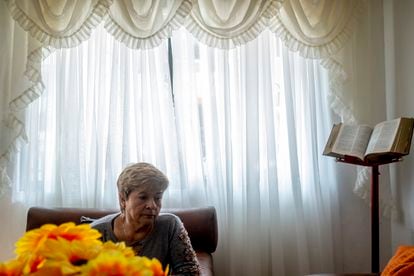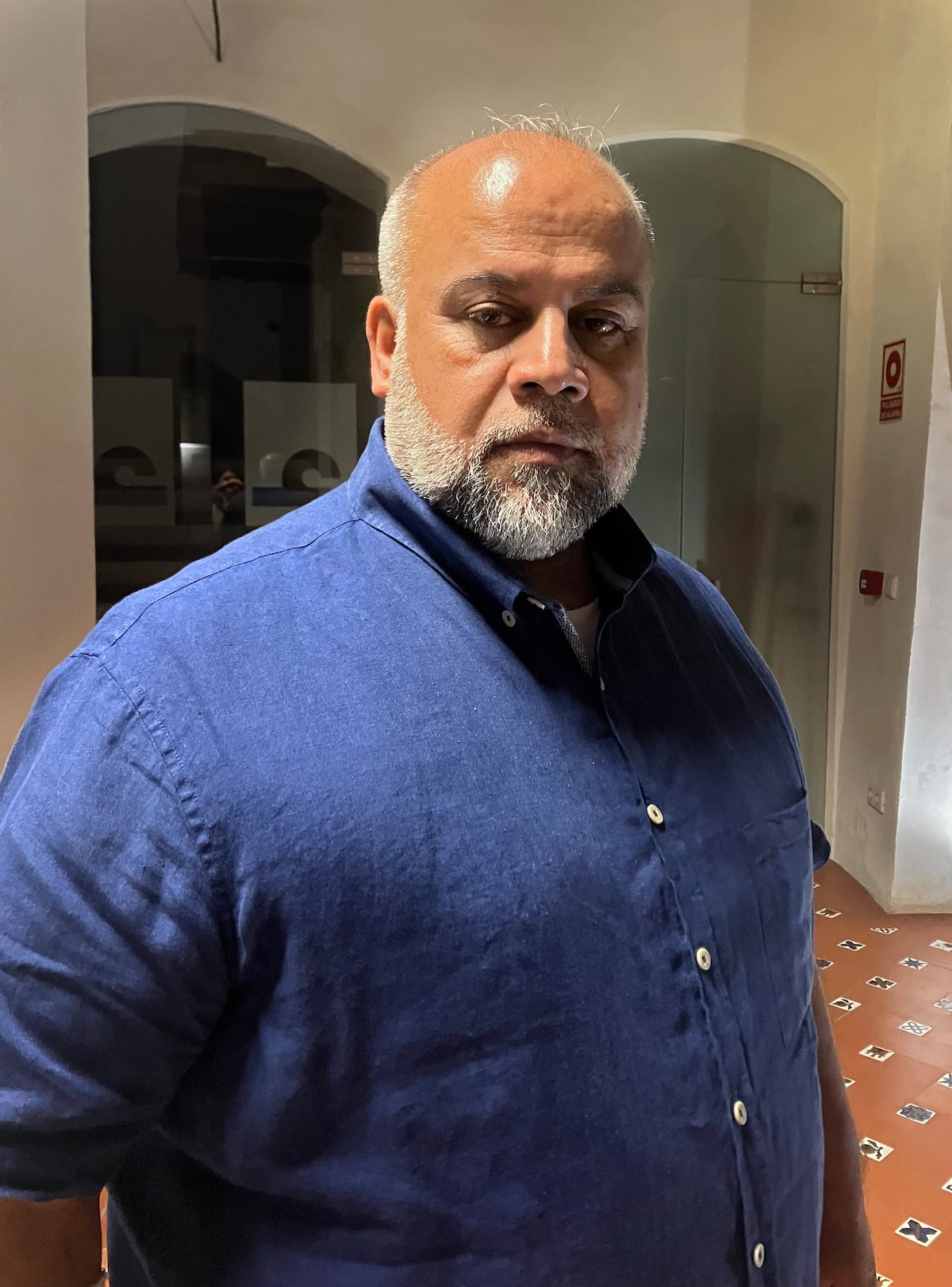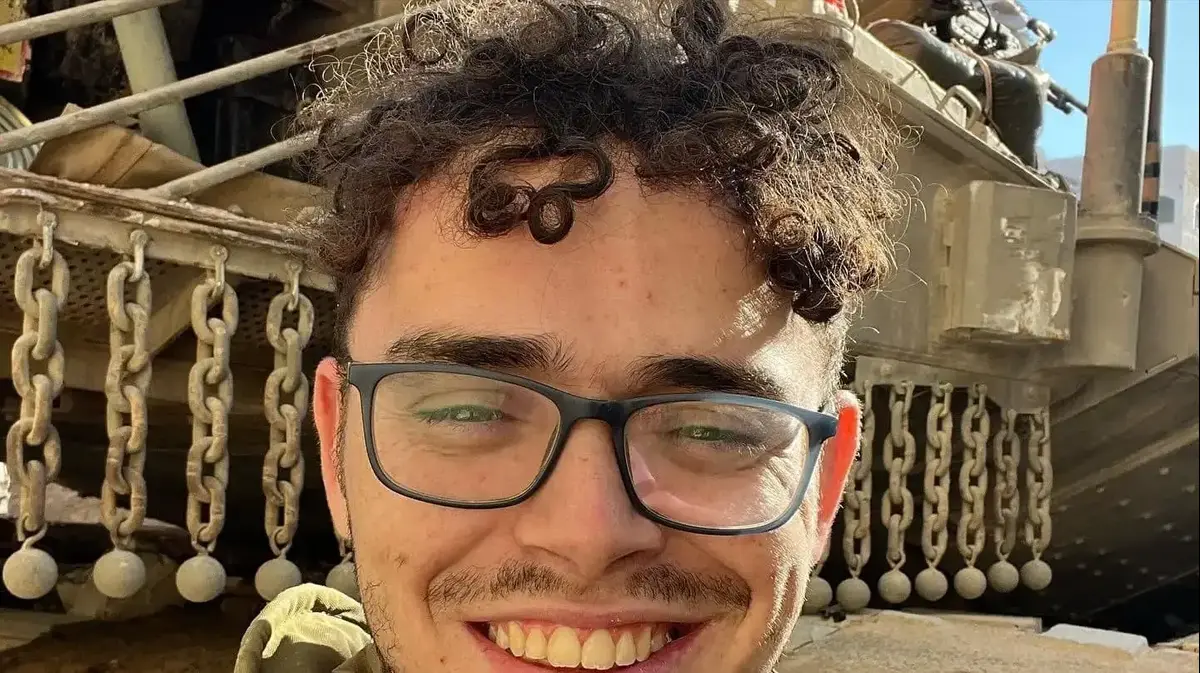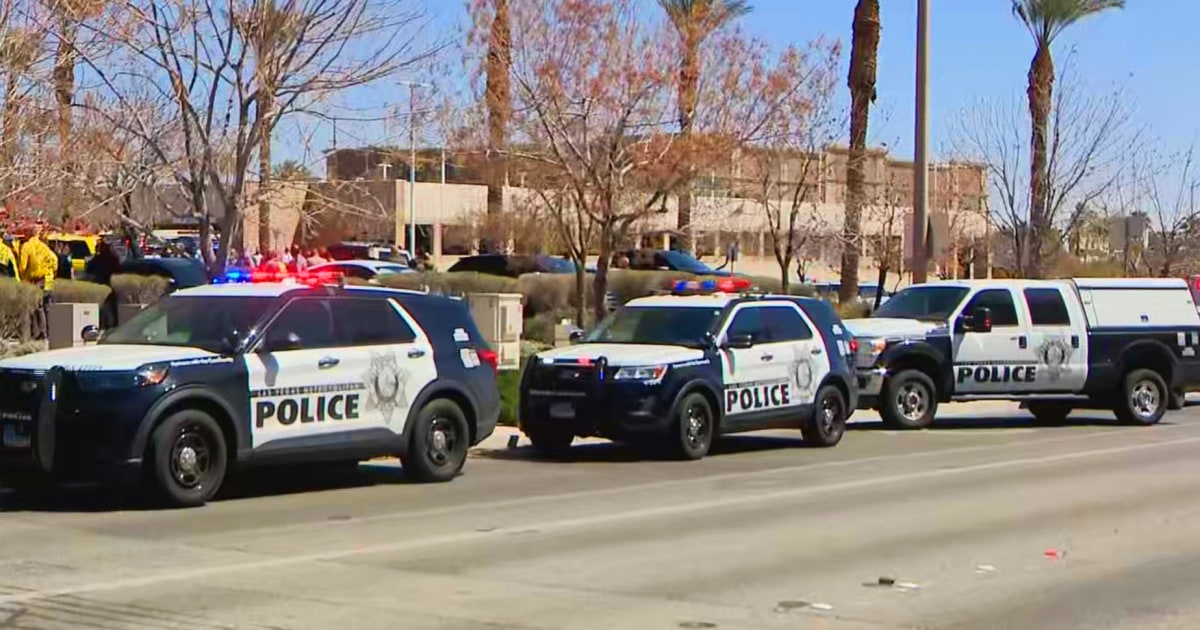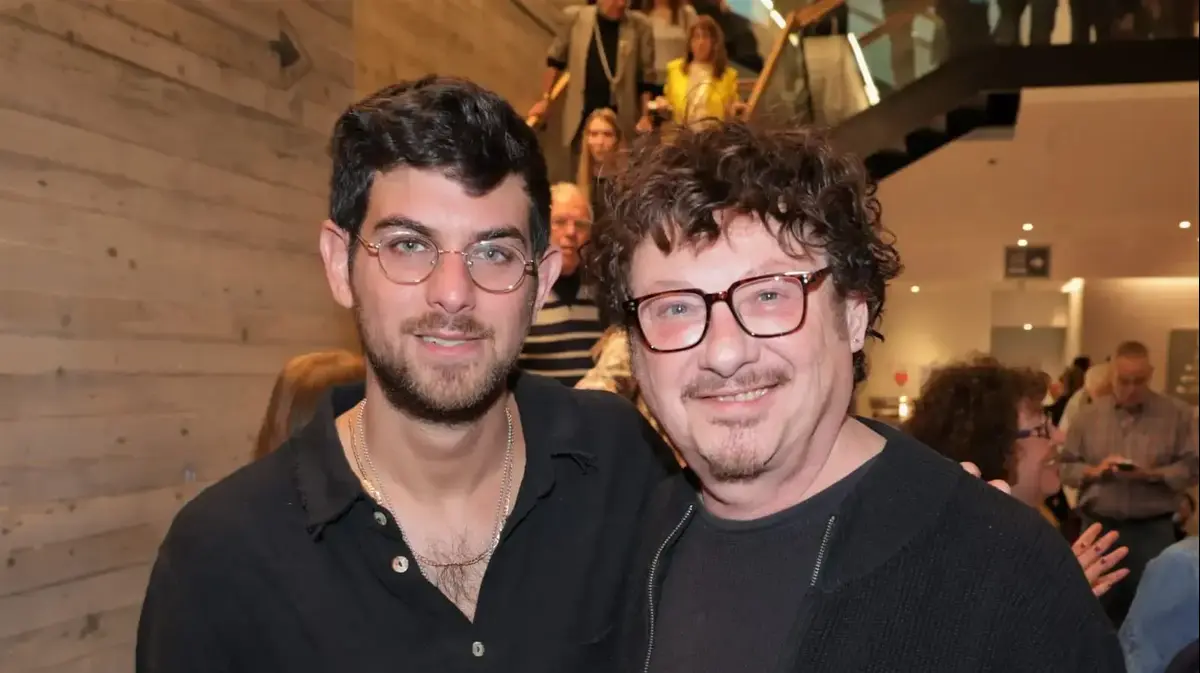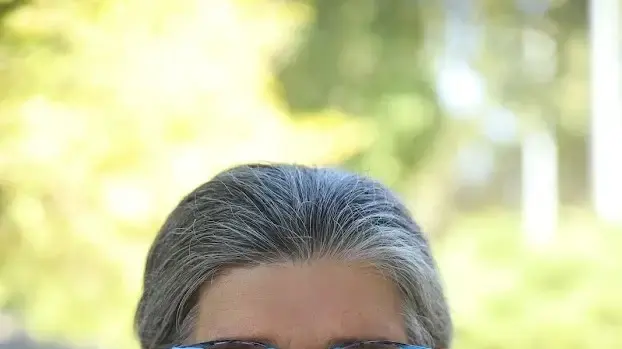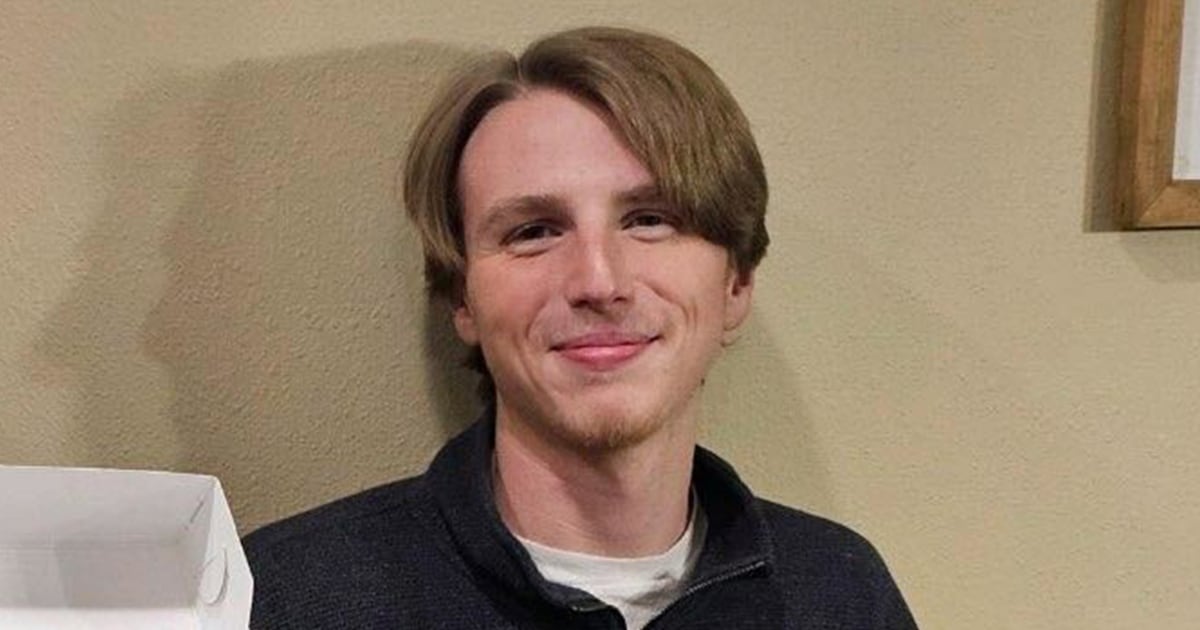For three months now, the first thing you see when you wake up is a screen that never turns off.
Before she even wakes up, Doña Belén Alzate, 70, stands up and looks at a coming and going of images of her own house from all angles.
Specifically, from six;
the number of surveillance cameras that have guarded her home since her son, Juan David López Alzate, 31, was brutally murdered on January 27. Live streaming of her portal now replaces television and any other entertainment .
“I see him every so often in case they come back.
In case they pass by here and I recognize the murderers”, she says with her eyes fixed on the recording, now, of her living room.
In his underpants, handcuffed, with a cloth over his mouth and in a pool of blood.
That is how she found it herself the day after the crime, along with a jar of popper – a drug widely used among homosexuals that causes a feeling of euphoria, vasodilation and increased desire – and empty beer cans.
“When they called me from work to ask me why she hadn't come, I already knew something had happened to her.
He was very judicious."
What she never imagined was that they had killed him.
Much less, the reason: "I still can't believe that my son was murdered for being gay."
The hypothesis with which the authorities are working is that the murderers met the victim through a dating application for homosexual men, Grindr.
Sixteen days earlier it had been Osvaldo Adolfo Botero Giraldo, 45 years old.
He died of mechanical asphyxiation.
After Juan David, it was Gustavo Alberto Arango Jaramillo, assassinated in similar conditions in a hotel in La Candelaria.
In just five months, there have been nine cases like these.
The victims, homosexual men between 28 and 62 years old, were found in their homes or hotels in Medellin with hardly any clothes, handcuffed and with signs of hanging.
Only one of them had 80 stab wounds.
The screen that reproduces the images of the six cameras that Doña Belén Alzate installed, after the murder of her 31-year-old son. Santiago Mesa
Although sources from the Prosecutor's Office assure that "sexual orientation is an important element of analysis", they rule out hate crime.
"In most cases there is an instrumentalization of sexual orientation to steal from the victims, who sometimes end up being murdered," they assure EL PAÍS.
The agency also "refrains" from confirming or ruling out that it is a serial killer so as not to affect the investigation that is still underway.
That Grindr was the common denominator of all homicides set off all the alarms.
Users of the LGTBI community of the capital of Antioquia received an alert with self-protection measures for appointments and the mayor, Daniel Quintero, promised rewards of up to 80 million pesos for the identification or capture of those responsible.
So far, the Prosecutor's Office has announced the arrest of four men, linked to different cases.
None have been convicted yet.
We have the right to enjoy our sexuality and encounters without fear
Harley Córdoba, lawyer and co-director of Alianza social LGBTI
The day before his death, Juan David had gone to work normally.
At noon, he had beans with squash for lunch at his parents' house, who live on the first floor of his own building, located in the Antonio Nariño neighborhood, in Medellín's 13th commune.
He did the shopping, cleaned the apartment and asked his mother to lend him the keys to enter "because she couldn't find them."
After that, Doña Belén never saw him alive again.
But she did hear “rock music” coming out of her room at dawn.
“It was like 2 in the morning, but I thought he would have fallen asleep listening to it.
I didn't want to wake him up because he got up very early."
According to the police report, Juan David lost his life between 10 and 3 in the morning, with no signs of sexual violence or resistance.
The mother of Juan David López Alzate, in the living room of her house, in Antonio Nariño, Medellín. Santiago Mesa
For two months, a sign has hung on the front of his house announcing the rental of Juan David's room.
“I don't tell people who ask about the apartment what happened inside.
What for? ”, He says from the passenger compartment, already empty.
His things were donated.
He barely keeps a couple of patterned shirts and a colored jacket.
Among the memories of him, there is a plastic bag with a shirt three sizes larger than the young man's, which appeared in bed the day he found him dead and still smells of sweat.
“That shirt does not belong to my son.
It has to be one of the killers, but the police never took it.
No one tells me anything."
To date, he has not had access to the autopsy.
Harley Córdoba, lawyer and co-director of Alianza social LGBTI, laments the feeling of vulnerability that is spreading among the gay community.
“The answer cannot be to stigmatize the use of these applications.
We have the right to enjoy our sexuality and encounters without fear, ”he says by phone.
However, for three years he has lived with a security scheme as a result of his activism in favor of the rights of the collective.
As a result of these homicides, he has received several threats through Grindr.
In 2020, according to partial figures from the NGO Colombia Diversa, 75 LGBT people were murdered throughout the country and in 2019 a total of 106. Just in the first half of 2021, there were already 98.
Andrés Sánchez and Hernán Macías López, assassinated on March 31 in Medellín.Cedida
"The problem is not whether or not we use the application," says Andrés Sánchez, 33, former partner of Hernán Macías López, found dead in a bathtub on March 31 in a hotel.
“Gays are vulnerable anywhere.
Even in a disco or on the street.
Two months after his death, he says that he begins to assimilate.
“But I keep asking myself why.
What would have happened if he hadn't used Grindr?
What if I couldn't have stayed?
What if he had tipped off another friend?”
What remains is frustration and endless questions.
José Gregorio Cáceres, a friend of Sahmir González Sarmiento, a Venezuelan murdered on February 15, hardly uses any dating app anymore.
“I used it when I felt safer.
After everything that has happened, our fears increased to a thousand”.
Indignation and impotence.
Those are the feelings that are repeated among family and friends, who now try to hold on to good memories.
Doña Belén goes over and over the last day that she saw her son at her house.
Days after the interview, she recalls lunch: “I remembered that she told me that she liked the beans very much.
I think she repeated a bit.
Yes, they liked it…”.
Subscribe here to the EL PAÍS América newsletter and receive all the key information on current affairs in the region

